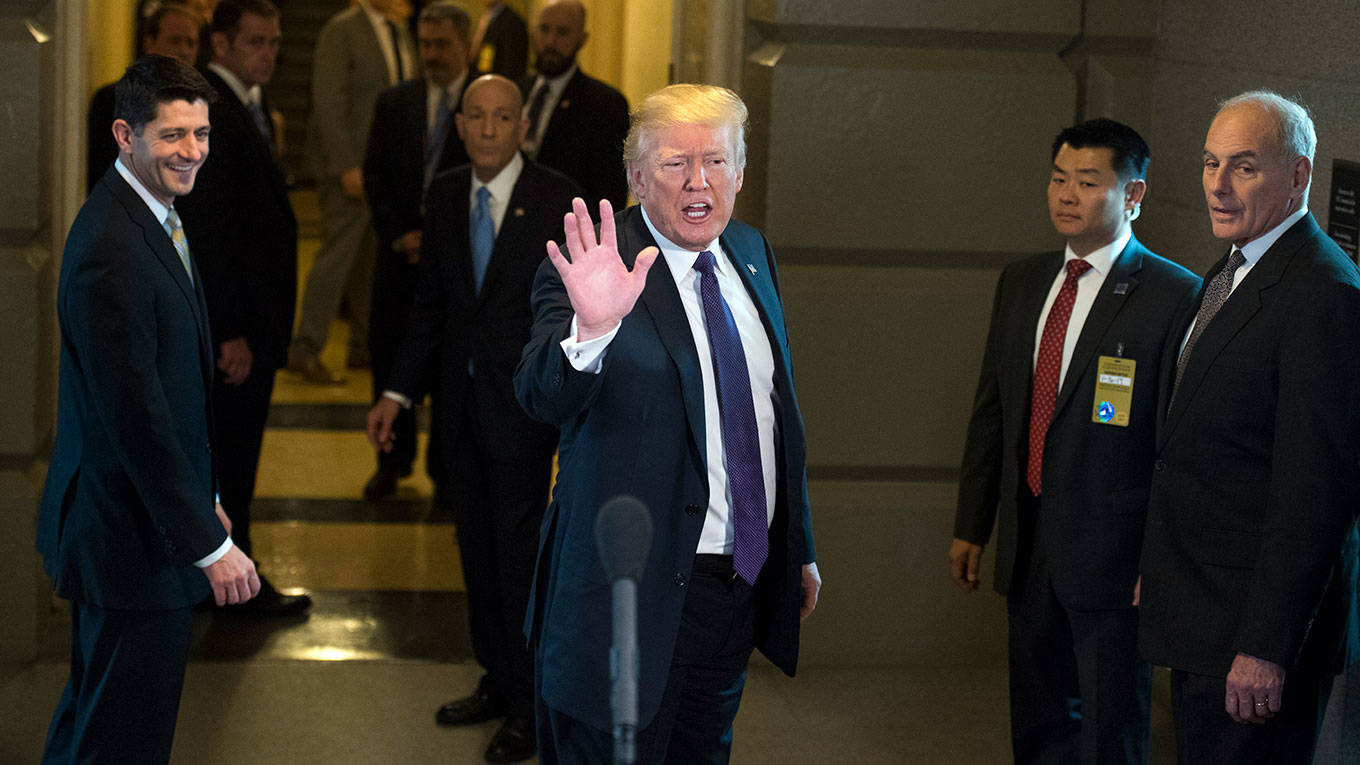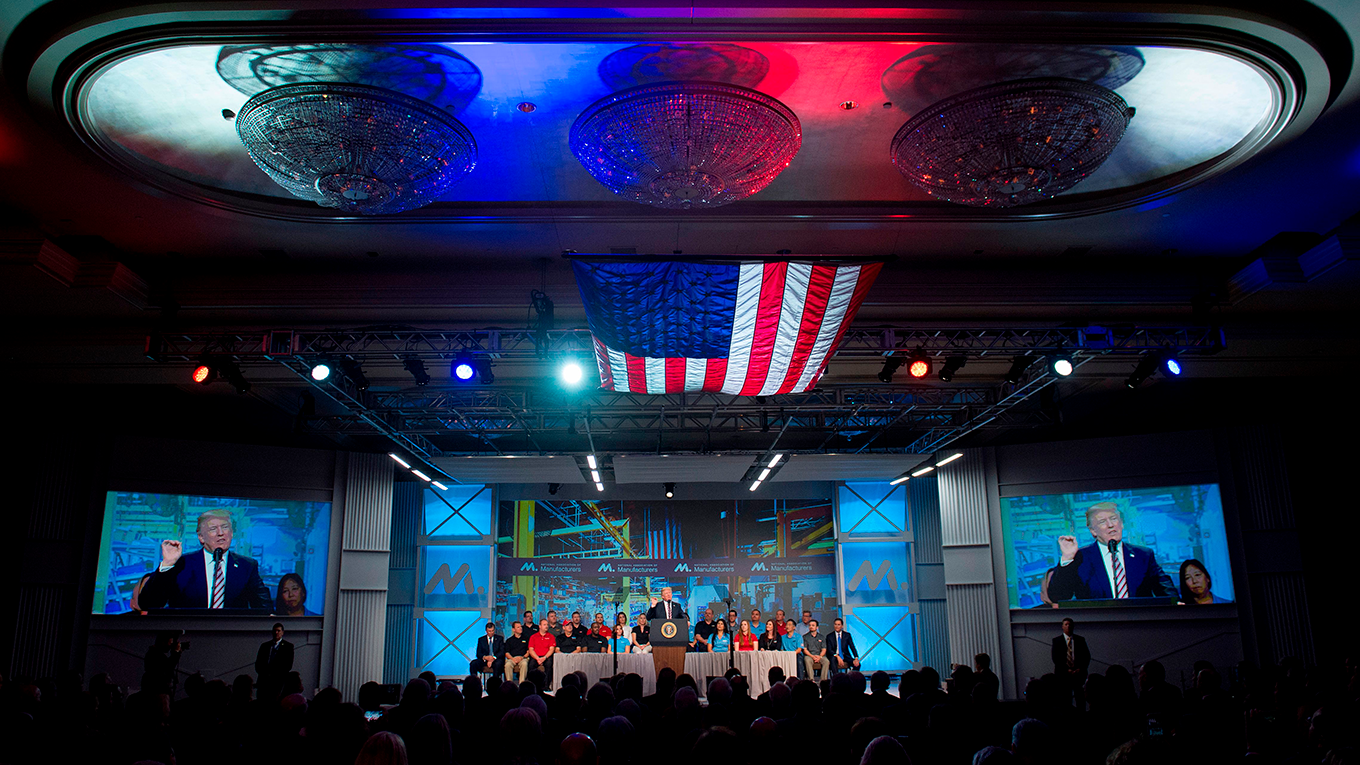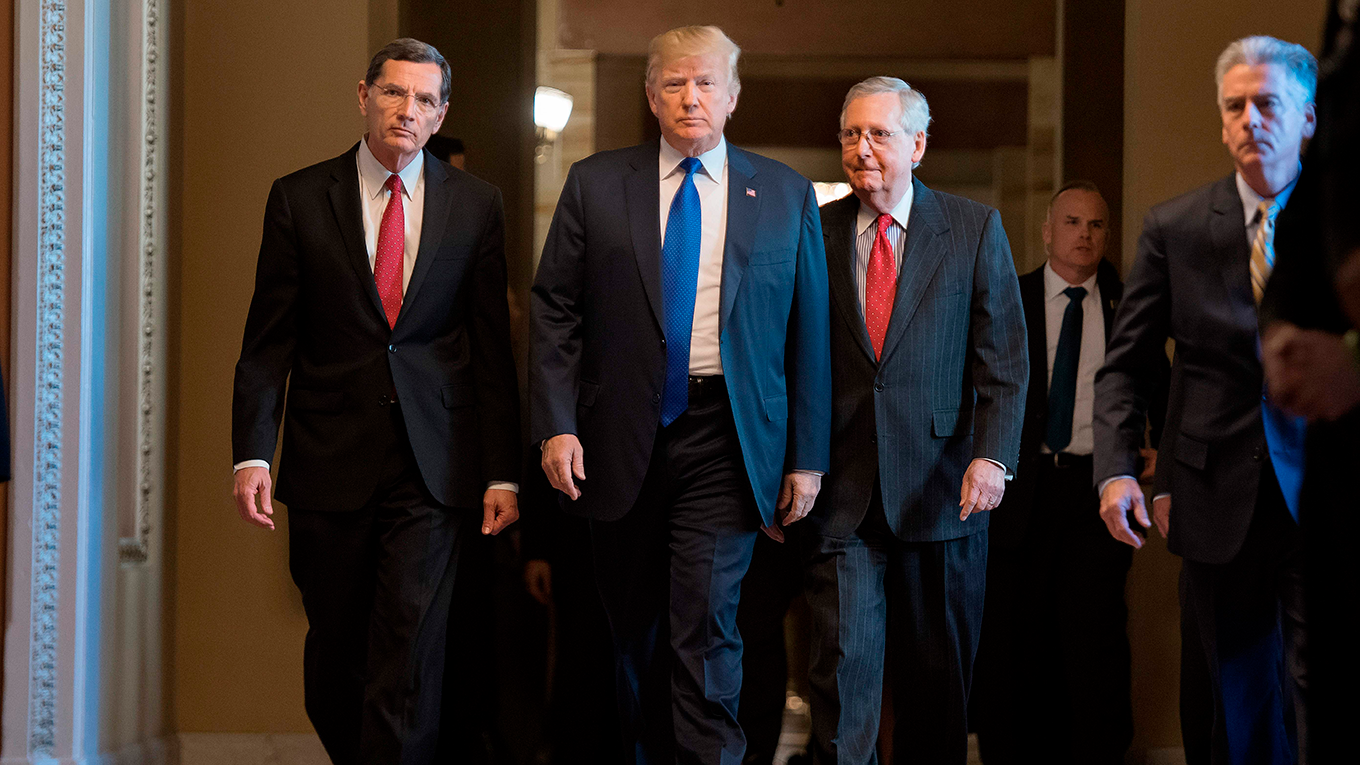Cutting US Corporate Tax Is Worth the Cost

backs Republicans' prediction that reducing the rate from 35% to 20% will lead to a revenue bonanza.
Martin Feldstein, Professor of Economics at Harvard University and President Emeritus of the National Bureau of Economic Research, chaired President Ronald Reagan’s Council of Economic Advisers from 1982 to 1984. In 2006, he was appointed to President Bush's Foreign Intelligence Advisory Board, and, in 2009, was appointed to President Obama's Economic Recovery Advisory Board. Currently, he is on the board of directors of the Council on Foreign Relations, the Trilateral Commission, and the Group of 30, a non-profit, international body that seeks greater understanding of global economic issues.

backs Republicans' prediction that reducing the rate from 35% to 20% will lead to a revenue bonanza.

is worried that the ECB's monetary policy has left the eurozone unable to respond to the next recession.

describes the likely impact of a corporate-rate reduction and a shift to a territorial system.

is optimistic that proposed Republican legislation will boost capital formation and economic growth.

highlights the costs that states and hospitals would face from cuts in the federal Medicaid program.


For four decades, China has achieved unprecedented economic growth under a centralized, authoritarian political system, far outpacing growth in the Western liberal democracies. So, is Chinese President Xi Jinping right to double down on authoritarianism, and is the “China model” truly a viable rival to Western-style democratic capitalism?

Artificial intelligence could be either the best or the worst thing that ever happened to mankind. To prepare for the profound changes to lives and livelihoods that lie ahead, the European Union should start establishing rules to protect all Europeans – and give the rest of the world a model to follow.

The global economy today is dominated by three major players – China, the EU, and the US – with roughly equal trading volumes and limited incentive to fight for the rules-based global trading system. With cooperation unlikely, the world should prepare itself for the erosion of the World Trade Organization.

Globalization, which was supposed to benefit developed and developing countries alike, is now reviled almost everywhere, as the political backlash in Europe and the US has shown. The challenge is to minimize the risk that the backlash will intensify, and that starts by understanding – and avoiding – past mistakes.

Despite all of the doom and gloom over the United Kingdom's impending withdrawal from the European Union, key manufacturing indicators are at their highest levels in four years, and the mood for investment may be improving. While parts of the UK are certainly weakening economically, others may finally be overcoming longstanding challenges.

With Brexit looming, the UK has no choice but to redesign its future trading relationships. As a major producer of sophisticated components, its long-term trade strategy should focus on gaining deep and unfettered access to integrated cross-border supply chains – and that means adopting a multilateral approach.

Many leading Republicans who stand by Donald Trump, and even the multi-billionaires who fund them, may have misgivings about the US president, just as the industrialists of Germany's Herrenklub probably once despised Hitler. But with few exceptions, they continue to support him – and for similar reasons.